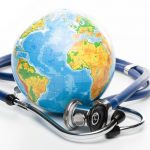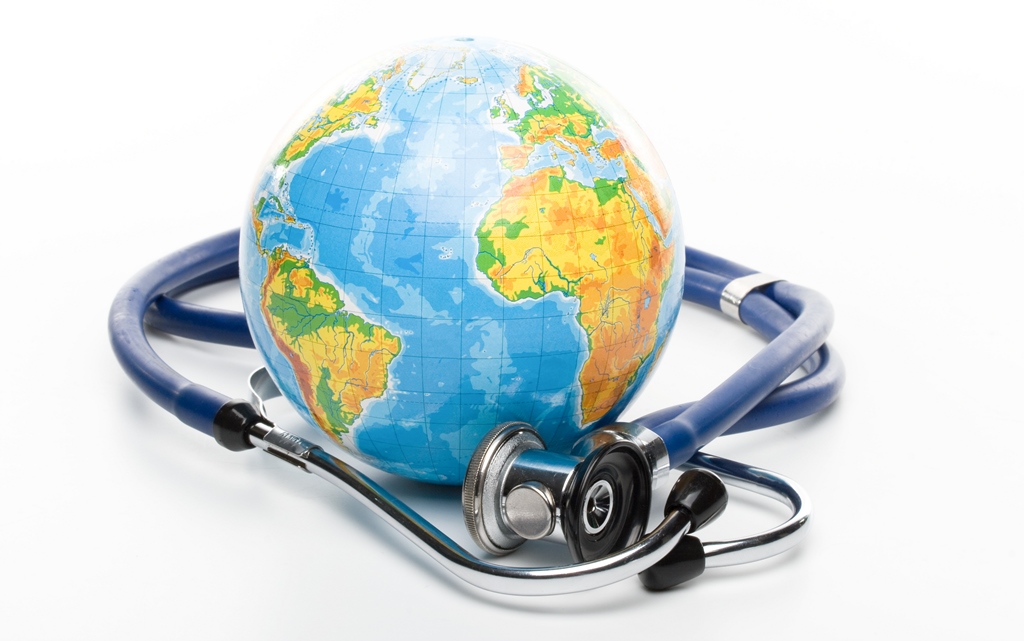 The Centers for Disease Control and Prevention in Atlanta, Georgia, is increasingly focused on health concerns outside the United States as the world becomes more interconnected. And its international mission goes well beyond fighting global infectious diseases like Zika and HIV. For instance, CDC Director Tom Frieden says drug resistance is making it difficult to administer modern medical care. Treatments including chemotherapy, dialysis and surgery depend on the ability to treat infection.
The Centers for Disease Control and Prevention in Atlanta, Georgia, is increasingly focused on health concerns outside the United States as the world becomes more interconnected. And its international mission goes well beyond fighting global infectious diseases like Zika and HIV. For instance, CDC Director Tom Frieden says drug resistance is making it difficult to administer modern medical care. Treatments including chemotherapy, dialysis and surgery depend on the ability to treat infection.
Another nightmare scenario CDC studies is the creation of dangerous organisms that could be released accidentally, in the case of a research experiment gone wrong, or intentionally, in biological warfare or a terrorist attack.
“These are real risks. Any of these situations could result in millions of deaths,” Frieden says.
The role of climate change in spreading disease is another concern. Researchers believe that when a heatwave hit far northern Russia in August, it caused anthrax bacteria, which may have been dormant in the frozen bodies of humans or reindeer, to be be released in the groundwater, resulting in the death of a 12-year-old boy.
All these factors make early detection of infectious outbreaks and rapid response more vital than ever. That requires money, preparation and the reliable sharing of information and coordination across borders. That’s where groups like the World Health Organization come in. But the WHO is having problems that show no signs of easing, says Laurie Garrett, a senior fellow for global health at the Council on Foreign Relations.
“Its handling of the Ebola epidemic in West Africa was abysmal, especially in the first nine months,” she says. “We now have the possibility of a massive resurgence of cholera in the wake of Hurricane Matthew in Haiti, and once again, the WHO is struggling.”
A large part of the problem, Garrett explains, is structural. The WHO has 194 voting nations, and gives equal vote to all of them. That means despite having roughly two-thirds of the world’s population, India and China each receive one vote.
Furthermore, she notes the WHO hasn’t raised dues for member states in more than 40 years, meaning the core budget is steadily going down if you account for inflation. Garrett says this leaves WHO dependent on just a few donors who give voluntarily. The three biggest are the US, the Bill and Melinda Gates Foundation and the United Kingdom.
As the WHO’s role has diminished, the CDC has been filling the void, says Ramanan Laxminarayan, director of the Center for Disease Dynamics, Economics and Policy.
“WHO receives now most of its funding for specific earmarked activities and its general ability to help countries has diminished significantly,” Laxminarayan says, “and therefore CDC’s role now in global health has increased as a consequence. CDC’s budgets are greater, and we depend on CDC to help fight global epidemics in other countries.”
Garrett points to the US government’s HIV prevention program as a prime example of the country’s influence and specificity. She notes that of the 18 million people worldwide who receive antiretroviral therapy, 12 million do so thanks to US government funding.
“It is the single largest government global health program in history. Nothing comes close,” she says.
While members of Congress have tended to be reluctant to fund international health efforts, Garrett says lawmakers are beginning to understand the importance of the CDC’s role in containing outbreaks wherever they start. Coming off the recent experience of Zika and Ebola, Congress is now considering an emergency fund that would be available immediately to help stop outbreaks before they balloon.
A House bill is currently seeking $300 million for the fund. It’s far below what the Obama administration and health officials feel is adequate, but CDC Director Frieden calls it a place to start.
Source: PRI

















